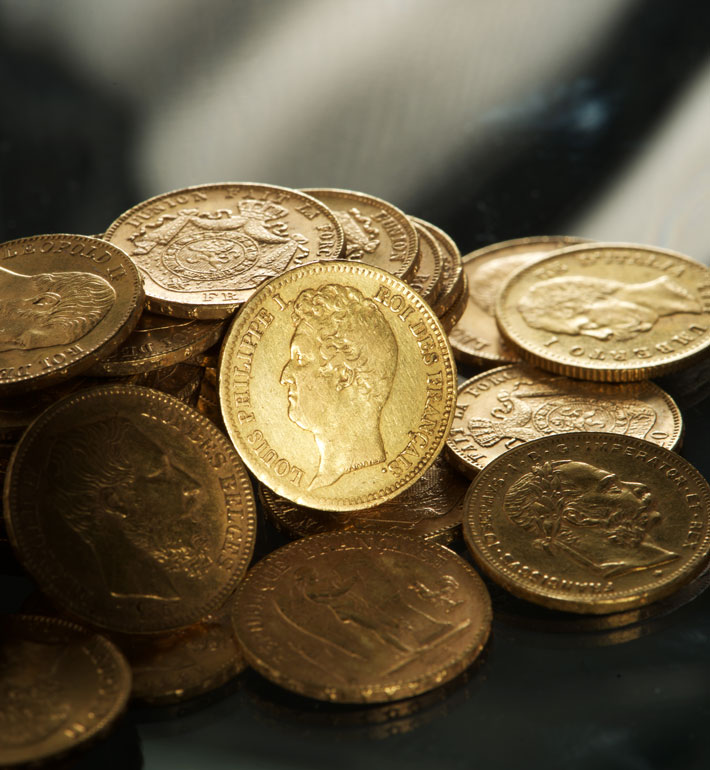A Nazi treasure trove of buried gold coins thought to be from the Nazi’s Reichsbank has been discovered in Northern Germany.
A metal detector enthusiast and treasure hunter, Florian Bautsch 31 years old, was searching for buried treasure in the countryside near his home in Luneberg. When he was searching the edge of a field under a row of trees, his metal detector alerted him to some kind of metal goods buried beneath the surface. Florian uncovered a gold coin and after more searching continued to find nine more coins, after which he decided he should notify the authorities and bring in experts to excavate the area.
When archaeologists searched the area they eventually recovered more than 200 of the gold coins. They are sure that the coins would have come from the Nazi’s Reichsbank which was established in the 1930s by the Third Reich.
The researchers believe that the coins must have been buried and hidden as the war was coming to an end. It is believed that the coins were minted any time between the 1830s and early 1900s. This is evident because of two seals engraved on the coins.
Further chemical dating tests date the seals and other items found with the coins to the era of World War Two. The seals include the Nazi symbols of the swastika, and imperial eagle and also the words Reichsbank Berlin.
It is thought that many of the Reichsbank’s riches were distributed across the country and buried or hidden as the war was coming to an end and the Third Reich realised that they were going to be taken by Allied and Soviet forces.
Florian’s findings of gold coins are thought to be valued at around US$50,000. Florian is said to be receiving a small finder’s bonus for locating the historical gold coins, the Fox News reports.
